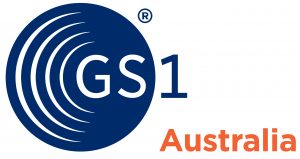
Product master data is critical for the retail supply chain. It’s up to all stakeholders to ensure their data is current and maintained correctly.
By GS1 Australia Director – Retail Andrew Steele.
Master data plays a critical role in the supply chain. It’s an enabler of core business functions such as ordering, merchandising, sales and marketing. Without correct foundational data, these transactional processes cannot go ahead – or perhaps worse, will go ahead riddled with flaws.
As so many business functions rely on master data, when the integrity of it falls away it can cause serious disruptions: from out-of-stocks if the order unit or some other data element has changed, right through to regulatory ramifications if, for example, the country-of-origin label statement is no longer correct.
Technology is increasing the importance of data integrity
Automation is driving the importance of getting product master data right. When you have distribution centres where robots are picking and building pallets, it’s essential that dimension and weight data are correct, otherwise disruptions can occur.
In-store, shelf layouts are planned to the millimetre, and changes to product packaging that are not communicated can result in instances where products no longer fit on shelf.
And finally, with the exponential growth in online shopping, retailers require all on-pack information, such as ingredients and allergen statements, to be accurate and available to the online shopper.
Everyone is responsible
Ultimately, product master data needs to have a higher profile within companies in the retail sector and not be the forgotten relative of sales and marketing. In a recent report published by KPMG, it was noted that in today’s consumer driven world, “the quality of a product’s master data is becoming as important as the quality of the product itself”.
While the supplier or distributor is responsible for creating master data, the buck doesn’t stop there.
It’s up to all stakeholders in the supply chain to ensure it’s up to date and maintained correctly.
Some businesses are very good when it comes to ensuring their master data is accurate and their supply chain partners are kept up to date, while others are not so. Most retailers will still tell you today that quality master data remains an ongoing challenge for them.
Numerous research papers published over the years, including one by GS1 in conjunction with IBM, found that grocery retailers were working with data that is inconsistent well over 80% of the time.
Rather than pay it lip service, good businesses have stringent processes to ensure ongoing quality master data and treat it as an area for continuous improvement, rather than a compulsory requirement from retail trading partners.
Aiding integrity throughout the supply chain
At GS1, we view master data as a key ongoing business process that doesn’t finish at the completion of the ‘new product introduction’ process. Most companies would make changes to their existing products at different points in time and it’s important that these are communicated along the supply chain to all partner stakeholders.
GS1’s role is to work with industry to develop global open data standards, provide tools and services, such as our National Product Catalogue, to assist companies in building greater awareness and understanding of the importance of quality product master data.
GS1 is currently working in partnership with the Australian Food & Grocery Council and Trading Partner Forum to produce a series of product master data videos to assist industry.
About Andrew Steele
Andrew is a leading retail industry expert and well-respected supply chain professional with more than 20 years’ experience in fast moving consumers goods and the food sector. He provides professional advice and implementation support for individual companies of all sizes and industry groups in their adoption and implementation of the GS1 system.
 About GS1 Australia
About GS1 Australia
GS1 is a neutral, not-for-profit organisation that develops and maintains the most widely used global standards for efficient business communication. It’s best known for the barcode, named by the BBC as one of “the 50 things that made the world economy”. GS1 standards and services improve the efficiency, safety and visibility of supply chains across physical and digital channels in 25 sectors. With local member organisations in 114 countries, 2 million user companies and 6 billion transactions every day, GS1 standards create a common language that supports systems and processes across the globe. For more information visit the GS1 Australia website or follow on LinkedIn, Twitter and YouTube.


